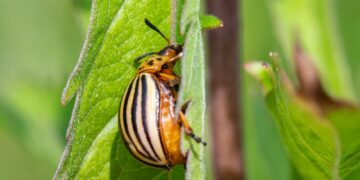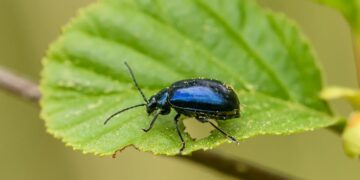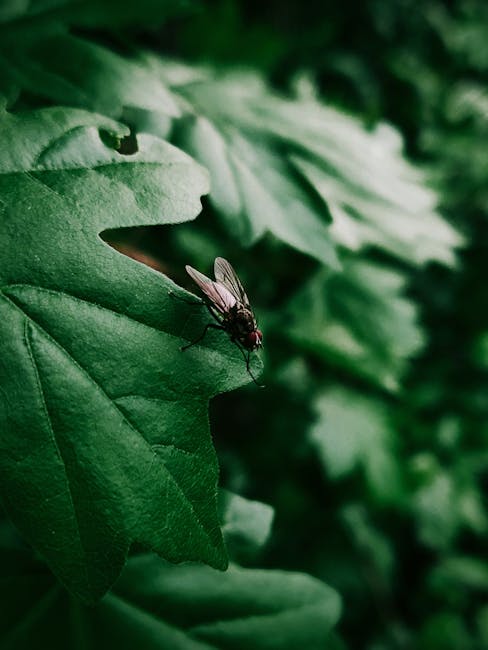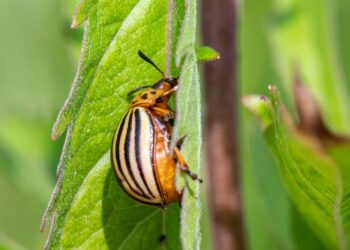Master Garden Weed Control with These Eco-Friendly Techniques
Weeds, while a natural part of any garden ecosystem, can often outpace and outcompete your desired plants for resources, becoming a menace to your neatly planned plots. Mastering the art of eco-friendly weed control can not only enhance your garden’s health and aesthetic but also ensure that you are contributing positively to the environment. In this comprehensive guide, we’ll explore innovative and sustainable ways to manage weeds effectively without harming the ecosystem.
Understand Your Enemy: Common Weeds in Gardens
Before diving into weed control techniques, it’s helpful to identify what kind of weeds you’re dealing with. ‘Broadleaf’ and ‘grass-like’ weeds are the two predominant types found in gardens. Each type may require slightly different approaches for effective management.
Popular Broadleaf Weeds:
- Dandelion: Known for its yellow flowers and fluffy seed heads.
- Clover: Recognizable by its trefoil leaves and white or pink flowers.
Common Grass-Like Weeds:
- Crabgrass: This weed thrives in hot conditions and spreads quickly across the ground.
- Nutgrass: Also known as nutsedge, it’s notorious for its resilience and rapid growth.
Non-Invasive Weed Removal Techniques
Leveraging non-invasive techniques to control weeds not only keeps your garden healthy but also preserves soil integrity and surrounding wildlife.
Mulching
Mulching is one of the simplest and most effective methods to suppress weeds. By applying a layer of organic material over the soil, mulches like straw, wood chips, or leaves block sunlight from reaching weed seeds, hindering their growth without the use of harsh chemicals.
Boiling Water
For small, manageable areas, pouring boiling water directly onto weed patches can exterminate them right down to the roots. However, be cautious around plants you wish to keep, as boiling water will not discriminate between weeds and flowers.
Organic Herbicides: A Safer Choice
If physical labor is not your preferred method, consider eco-friendly herbicides as an alternative. These products generally contain natural ingredients that degrade quickly in the environment, minimizing long-term impact.
Vinegar-Based Herbicides
Acetic acid in household vinegar can effectively kill young weed plants. A higher concentration vinegar or a horticultural vinegar is often more effective and can be applied directly onto the weeds.
Citrus Oil & Soap Herbicides
A mixture of citrus oil and soap can act as a natural herbicide. The oil strips away the weed’s protective waxy coating, allowing the soap to penetrate and dehydrate the plant quickly.
Plants That Help Fight Weeds
Utilizing plant allies in your garden is a clever and natural way to manage weed growth. Certain plants can suppress weeds by outcompeting them, offering dense foliage, or even having natural herbicidal properties.
Ground Cover Plants
Choosing dense ground cover plants such as creeping thyme, ajuga, and sedum can naturally suppress weeds by shading the soil and using up resources.
Allelopathic Plants
Some plants, like marigolds and rye, release chemicals from their roots or when decomposing that inhibit weed germination and growth. Integrating these plants into your garden can reduce weed proliferation naturally.
Frequently Asked Questions About Eco-Friendly Weed Control
How often should I apply organic herbicides?
Organic herbicides generally act more slowly than chemical ones and may require multiple applications, especially if the weeds are mature. Always follow the instructions on the product label.
Can mulching alone effectively control weeds?
While mulching is incredibly effective, it often works best when combined with other methods like hand pulling or planting ground covers, as some weeds may still flourish in mulch if left unchecked.
The Bottom Line
Mastering eco-friendly techniques for controlling weeds in your garden is not just about aesthetics and convenience—it’s a commitment to maintaining the health and sustainability of your environment. Whether through mechanical means, organic herbicides, or strategic plant choices, each method offers a part in a varied arsenal against weeds. By combining these strategies and staying observant of the specific conditions and needs of your garden, you can enjoy a lush, healthy, and virtually weed-free garden.




















































